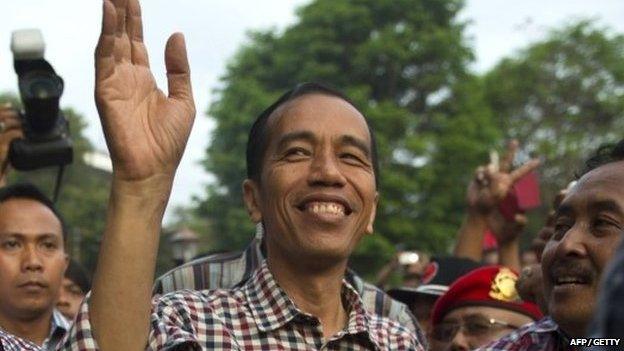Indonesia probes alleged police drug links
- Published

Joko Widodo's hard line on drug trafficking is a popular position among Indonesians
The Indonesian President Joko Widodo has ordered police to investigate allegations that security services have been involved in drug trafficking.
The claims were made by a leading human rights activist and have been widely shared on social media.
The police have strongly rejected the accusations.
Indonesia has some of the world's toughest drug laws, executing 18 people for drug-related crimes since President Widodo assumed office two years ago.
The allegations were made by prominent activist Haris Azhar, who says he had a conversation with a well-known Indonesian drug dealer whom he visited in prison in 2014.
Mr Azhar wrote on social media that the dealer, Freddy Budiman, told him he had paid police, military and special narcotics agents to protect his lucrative drug-dealing business.
Mr Budiman was executed last month by firing squad, along with three other men accused of drug crimes.
The bodies of four prisoners executed last month were transported amid a tight police presence
Indonesian and three Nigerians executed for drug crimes
Indonesia human rights lawyer speaks up
Indonesia's Widodo vows no amnesty for death row drug traffickers
The police have threatened Haris Azhar with defamation charges.
But after the postings were widely shared, President Widodo ordered security agencies to take action to "trace, investigate and process" the claims.
He also questioned why the allegations had been published two years after they were first made.
Haris Azhar has said that any investigation team must be independent. "The president must take responsibility," he told the AFP news agency.
Mr Widodo became president in July 2014 promising to tackle corruption and drug-trafficking.
The executions of 14 convicts for drug-related crimes in 2015 were widely criticised.
- Published29 July 2016
- Published29 July 2016
- Published27 January 2015